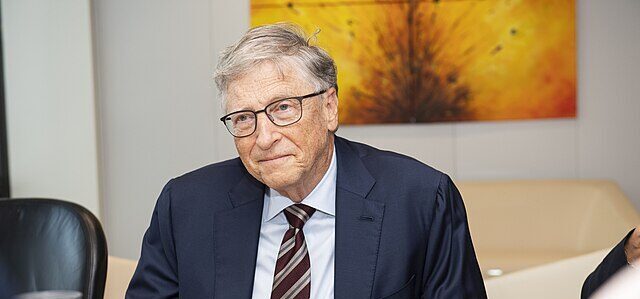There is a very good chance that you have never heard of Derek Silvers, creator of one of the best lessons in leadership ever.
The video “First Follower: Leadership Lessons from Dancing Guy” was initially presented at a 2010 TED conference and later posted online. Highly entertaining and only three minutes long, the video focuses on a young man at the Sasquatch Music Festival, dancing alone on the side of a hill as fellow revelers pass by or sit in the nearby grass. In his voiceover narration, Silvers expounds on the pearls of wisdom one can glean about leadership from observing said Dancing Guy.
One of these lessons, according to Silvers, is that leadership is, in fact, overrated. A passerby decides to join Dancing Guy and begins following his moves, much to Dancing Guy’s delight. This new person gestures to his friends to join them, and then more and more people glom onto the group, effectively changing Dancing Guy’s status from a “lone nut” to a party-starter.
“There is no movement without the first follower,” says Silvers. “We’re told we all need to be leaders, but that would be really ineffective. The best way to make a movement, if you really care, is to courageously follow and show others how to follow.”

For Jews, this take brings to mind the story of Nachshon in the Book of Exodus. According to a discussion in the Talmud (Sotah 37a), Nachshon was the first person to enter the Red Sea as the Egyptian army advanced towards the fleeing Israelites. “[T]his tribe said, ‘I am not going into the sea first,’ and that tribe said, ‘I am not going into the sea first.’ Then, in jumped the prince of Judah, Nachshon ben Aminadav, and descended into the sea first… At that time, Moshe was prolonging his prayer. The Holy One, Blessed be He, said to him, ‘My beloved ones are drowning in the sea and you prolong your prayer to me?’ Moses said before Him, ‘Master of the Universe, but what can I do?’ God said to him, ‘Speak to the children of Israel that they go forward. And you, lift up your rod and stretch out your hand’ [Exodus 14:15–16].”
Whether you relate more to the zaniness of Dancing Guy or the faith of Nachshon, the heart of the matter is the same: Building a successful movement is more about the followers than the leaders.
It was with this thought in mind that I joined with the almost 300,000 people who gathered on the National Mall on Tuesday at the March for Israel. Brilliantly orchestrated by our friends at the Jewish Federations of North America and the Conference of Presidents of Major American Jewish Organizations, the event brought much-needed attention to the plight of the hostages brutally abducted by Hamas on Oct. 7 and the alarming levels of antisemitism we are witnessing all over the world. It also sent a clear message that “Never Again is Now,” and that the Jewish people remain very connected — to Israel and to ourselves as a people — even as we struggle with some internal differences. In short, the event was a magnificent showing of Jewish pride, Jewish resolve and Jewish family.
The March also highlighted the fact the Jewish world is full of amazing followers, not just remarkable leaders. Some of the most active and visible leaders in Jewish communal life were in the audience, not on stage. They were there to show their support of the cause and solidarity with the Jewish people. They were there because this is a time when we need all hands on deck and have no time to arrange the deck chairs; each of us must be ready and willing to do whatever we can to strengthen our people, bolster our resolve, meet immediate needs in Israel and fight antisemitism wherever it rears its ugly head. They were there as followers, and as leaders.
This week also marked an important milestone for the grassroots organization Global Jewry. Only a few months old, we recently added our 100th organizational partner. That number continues to climb, as does the size of our advisory board: we now have more than 325 Jewish leaders, activists and influencers from all over the globe who share our passion for strengthening the bonds that unite the Jewish people. We deeply appreciate their counsel and support and look forward to recruiting even more advisors as our initiative continues to grow and evolve.
While our mission is simple, its implementation is not. We can use all the help we can get figuring out the best way to connect with every Jewish person in the world, to let them know they are a valued member of the Jewish people, to inspire them to participate in Jewish life and to help them welcome their partners, families and allies to the Jewish community. In short, we need followers as leaders and leaders as followers.
We want Global Jewry to be an effort in which our ideological, denominational, organizational and demographic divisions are set aside and we join together to celebrate all that we share as a global Jewish community. We want Global Jewry to be a place where we embrace our diversity and appreciate that we are stronger for the unique contributions each of us can make to the Jewish people and the world at large; a safe and welcoming space for everyone wishing to explore our religion, our history, our culture and our contributions to humanity.
While we of course hope people will like and follow us on Facebook, Instagram, LinkedIn and elsewhere, we would prefer them to do even more: we want them to help us achieve our mission. We want people who, as Robert Kelly explained in his 1988 article in the Harvard Business Review, are “effective” followers:
“What distinguishes an effective from an ineffective follower is enthusiastic, intelligent, and self-reliant participation — without star billing — in the pursuit of an organizational goal. Effective followers differ in their motivations for following and in their perceptions of the role. Some choose followership as their primary role…and serve as team players who take satisfaction in helping to further a cause, an idea… or, more rarely, a person. Others are leaders in some situations but choose the follower role in a particular context. Both these groups view the role of follower as legitimate, inherently valuable, even virtuous.”
In short, we want the kinds of followers attracted by the Dancing Guy and Nachshon, as well as Theodore Herzl and Natan Sharansky. It is those kinds of followers who will provide us with the leadership, strength and resources required to help Global Jewry achieve its full potential and allow the Jewish people to continue repairing this very fractured and fragile world.
Please join us in this vital effort. Our togetherness has never been more important.
Sandy Cardin is the founder of Global Jewry, a new initiative devoted to strengthening the bonds that connect and unite Jews all over the world.
Credit:Source link


